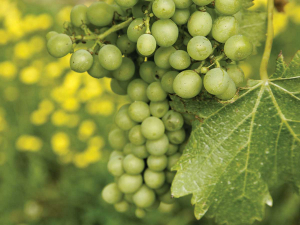Damien O’Connor: NZ united on global trade
When it comes to international trade, politicians from all sides of the aisle are united, says Labour's trade spokesman Damien O'Connor.
 Obermaier says an example of geographical indications opening up opportunities for New Zealand lies in Marlborough Sauvignon Blanc.
Obermaier says an example of geographical indications opening up opportunities for New Zealand lies in Marlborough Sauvignon Blanc.
While there was much protest about the EU's insistence in preserving geographical indications for some of its products, especially cheese, EU ambassador to New Zealand Nina Obermaier insists that this protocol opens up opportunities for NZ.
She points to Marlborough Sauvignon Blanc as an example, which has a very high recognition in Europe.
She says this is due in part to backpackers who have come to NZ and tasted this wine and want to buy it back in their home country.
Obermaier says the insistence on geographical indications can be linked to the overall food culture that exists in Europe, which is not so strong in NZ.
She says for many people in Europe, food is a part of their cultural heritage.
"It depends on which country you are in," she explains. "Some have a much stronger tradition than others, but in general it is something that is cherished as part of cultural life."
Controls on the movement of fruit and vegetables in the Auckland suburb of Mt Roskill have been lifted.
Fonterra farmer shareholders and unit holders are in line for another payment in April.
Farmers are being encouraged to take a closer look at the refrigerants running inside their on-farm systems, as international and domestic pressure continues to build on high global warming potential (GWP) 400-series refrigerants.
As expected, Fonterra has lifted its 2025-26 forecast farmgate milk price mid-point to $9.50/kgMS.
Bovonic says a return on investment study has found its automated mastitis detection technology, QuadSense, is delivering financial, labour, and animal-health benefits on New Zealand dairy farms worth an estimated $29,547 per season.
Pāmu has welcomed ten new apprentices into its 2026 intake, marking the second year of a scheme designed to equip the next generation of farmers with the skills, knowledge, and experience needed for a thriving career in agriculture.

OPINION: Here w go: the election date is set for November 7 and the politicians are out of the gate…
OPINION: ECan data was released a few days ago showing Canterbury farmers have made “giant strides on environmental performance”.